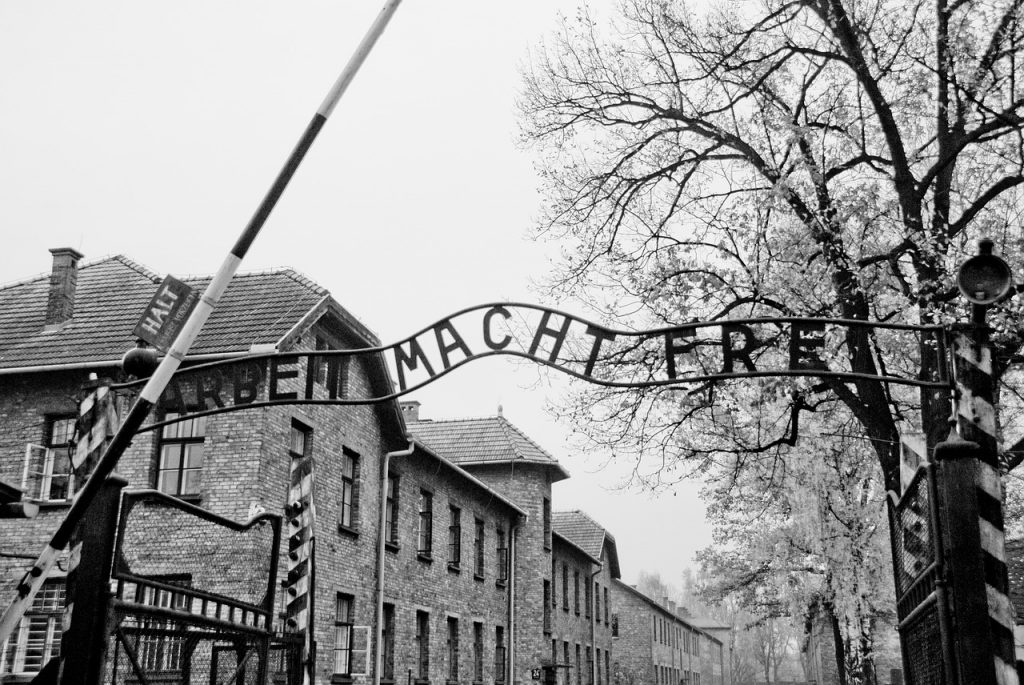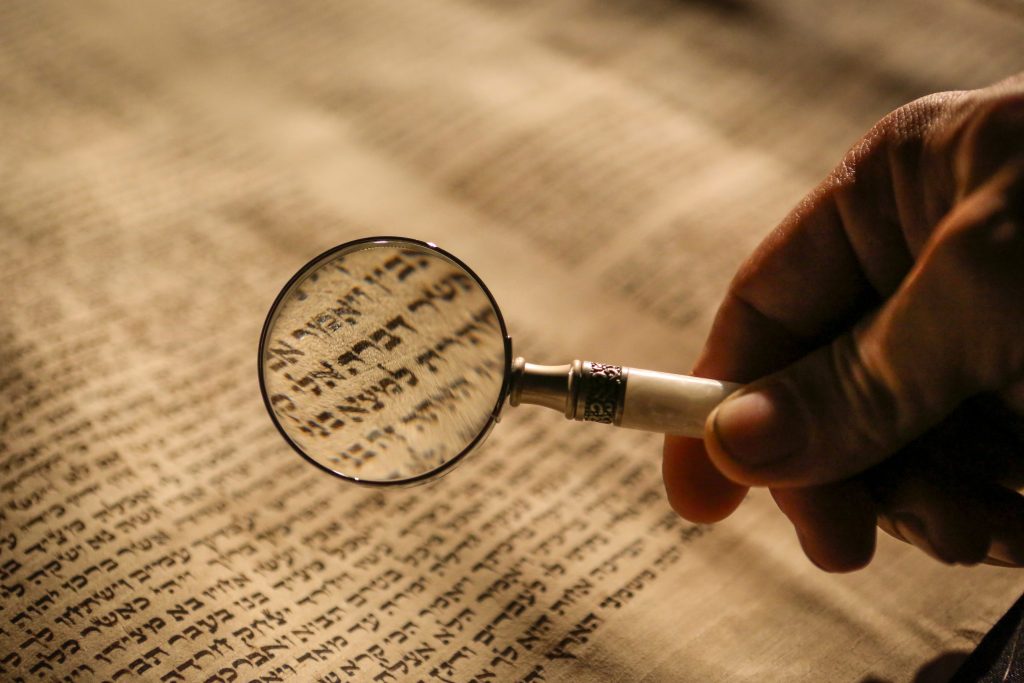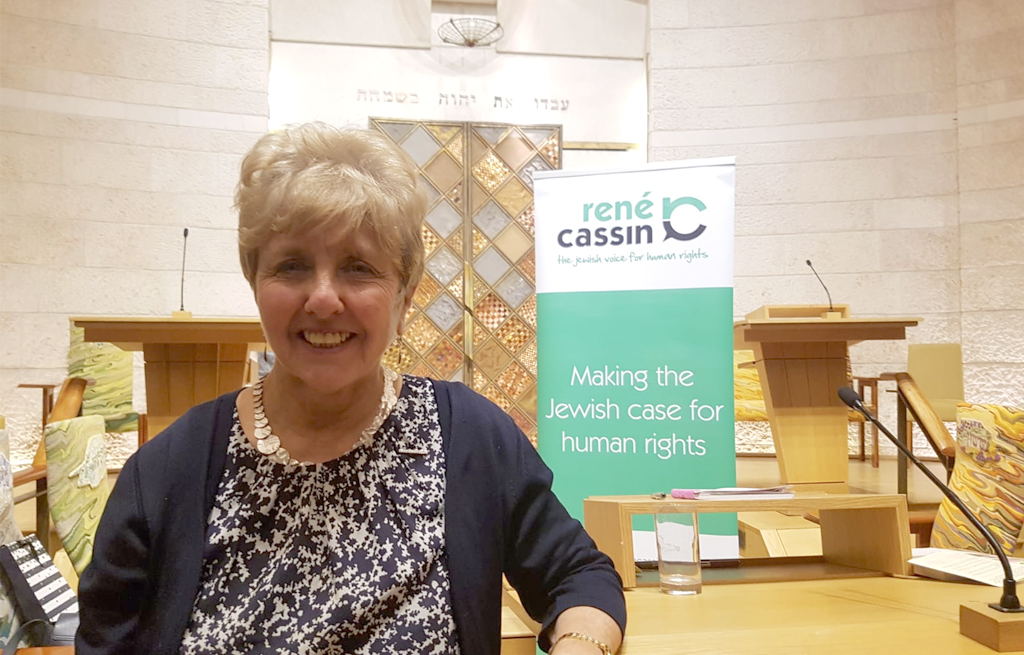“I can remember no other period when we’ve been in greater danger of losing the insights and wisdom of the Universal Declaration of Human Rights (UDHR).”
Those were the words of Professor Francesca Klug OBE, who has been a human rights activist for over 30 years, as she spoke to a crowd of listeners at the Liberal Jewish Synagogue in Westminster on Tuesday (10 September).
“[The UDHR’s] vision is the polar opposite of the rhetoric gaining traction now,” she said. “If we look around we see human rights abuses almost everywhere that shame us all – don’t we?”
Despite surges in racism, homophobia, and other forms of hatred, Prof Klug urged the dozens of people in attendance to remain optimistic. She said: “The UDHR was not written for the past, for that was already over and could not be undone.
“It was written, in fact, for a precise moment like now — what Martin Luther King called the “fierce urgency of now” — to equip us to recognise when forgetfulness returns, as the Declaration’s drafters knew it surely would.”
Adopted by the United Nations General Assembly in 1948 in the aftermath of World War Two, the Declaration sets out the rights and freedoms that everyone across the world is entitled to.
She explained that the UDHR introduced two new revolutionary ideas – that human rights are universal, and that they are international. “National sovereignty must not provide a cloak behind which governments hide,” she said.
The nine-strong committee responsible for drafting the Declaration included Chinese Confucian Peng Chung Chan, French Jew Rene Cassin, and Lebanese Christian Charles Habib Malik.
Klug told of the ways in which Jewish ideas and experiences, among other cultural and political influences, shaped the landmark document:
Historical Experience

Image Credit: Maxpixel.
“Perhaps the most remarkable aspect of the UDHR was that it was written at all,” Prof Klug said. “It wasn’t inevitable, but derived from human tragedy, prolonged struggle and heated negotiations.”
“You won’t find the word ‘Holocaust’ cited in any of the UDHR debates” she added, explaining the term only gained traction in the years after it had been adopted.
But she highlighted there are “umpteen references” throughout to Nazism, Hitler, fascism, and “monstrous crimes” committed during the war.
“By the time the UDHR was drafted, there was growing awareness of the annihilation of a quarter of European Roma and two-thirds of Europe’s Jews.”
Authorship And Advocacy
Jewish advocates for the Declaration on Human Rights included Rene Cassin, Raphael Lemkin and Hersch Lauterpacht, Prof Klug said.
Rene Cassin – who was a French-Jewish juror, law professor and judge – was the only one directly involved in drafting the text, and he was awarded a Nobel Peace Prize in 1968.
Prof Klug revealed Lauterpacht was snubbed by the Foreign Office chief legal advisor Eric Beckett, who wanted a “very English delegate”, despite being a Cambridge University professor.
“When all is said and done” Beckett wrote, “Professor Lauterpacht, although a distinguished …international lawyer is…a Jew fairly recently come from Vienna.”
He added that a UN delegate needed to be “imbued throughout his life and hereditary to the real meaning of human rights as we understand them in this country”.
Lauterpacht came to the UK escaping Nazi persecution in Austria.
Ethics And Values

Image Credit: Unsplash.
“Although clearly aimed at those of any faith or none, the Declaration has even been described by some clerics of different faiths as of ‘divine origin’,” said Prof Klug.
Cassin maintained that Article 1 of declaration – that “[we] should act towards one another in a spirit of brotherhoods – corresponds to two iconic biblical injunctions, she highlighted.
These are the commandments to “love thy neighbour as yourself”, as found in Leviticus, and that “you shall not oppress the stranger for you were strangers once” repeated at least 36 times in the Hebrew scriptures.
Prof Klug closed her speech by paraphrasing Talmudic Sage Rabbi Hillel, who said: “All the rest is commentary.”
According to the Talmudic story, when the first-century-BC rabbinic sage was asked to relate the whole Torah on one foot he replied: “That which is hateful to you, do not unto another: This is the whole Torah. The rest is commentary — [and now] go study.”
Tuesday’s event was organised by the human rights charity Rene Cassin – find out more about their work here.







